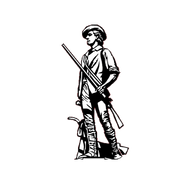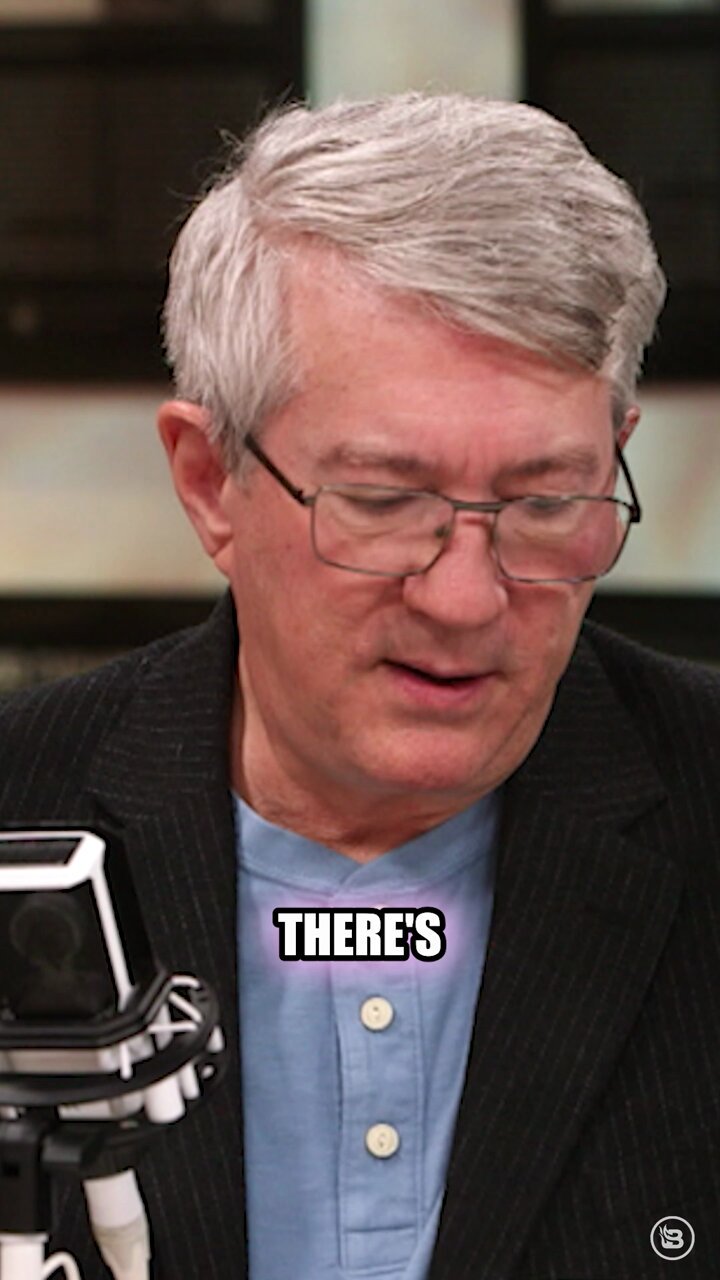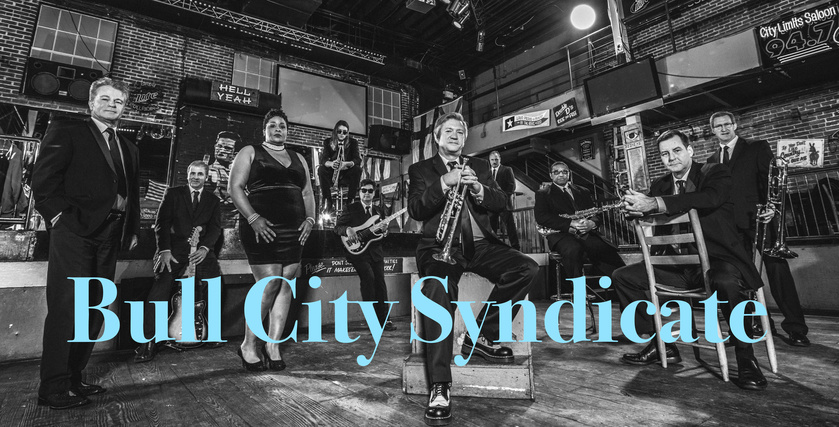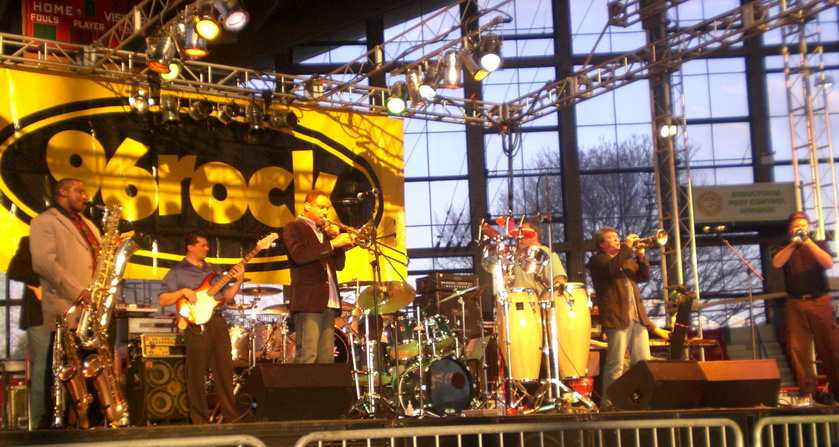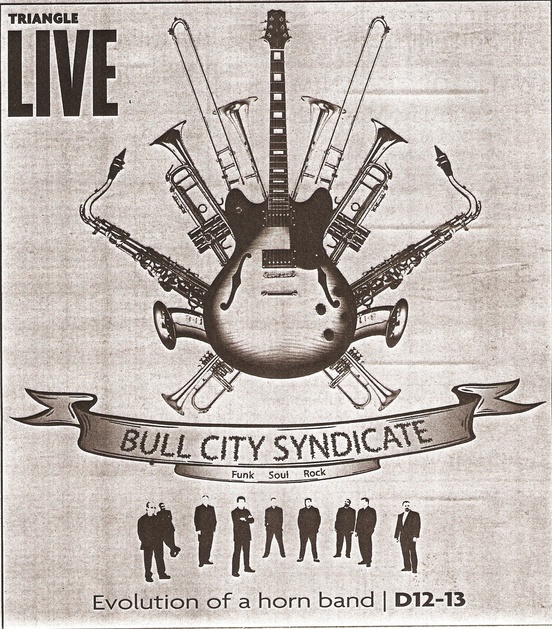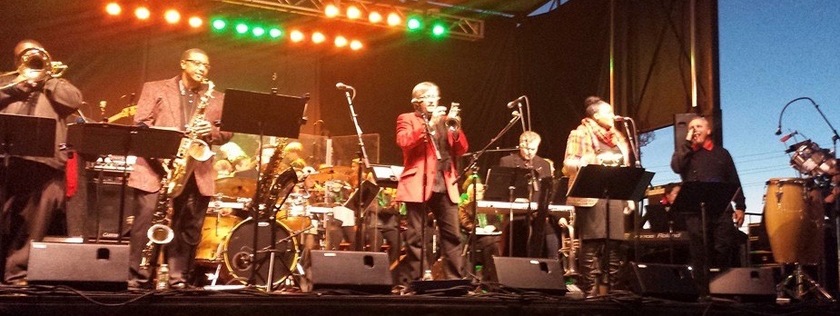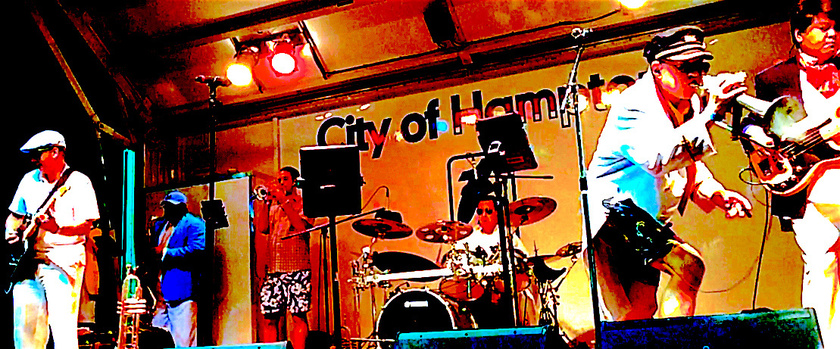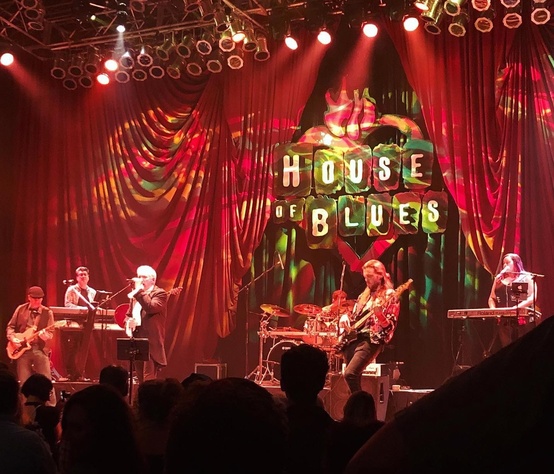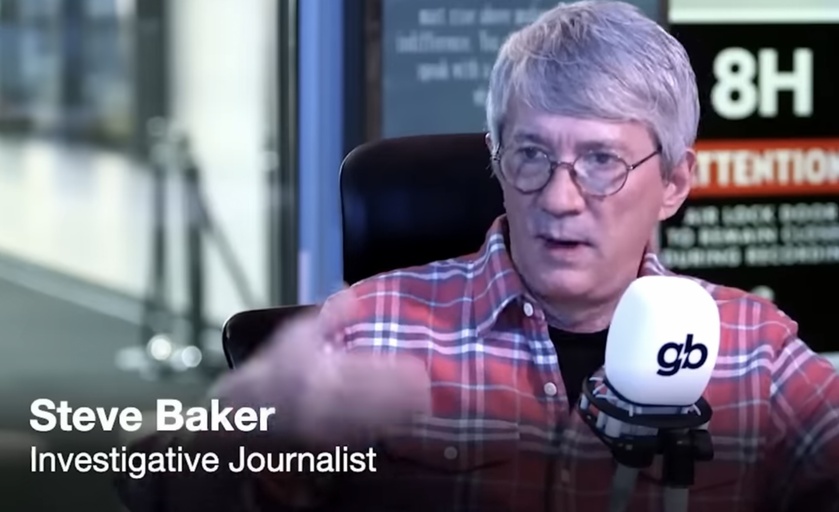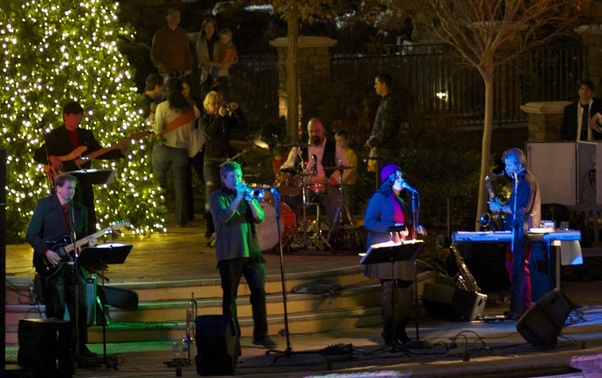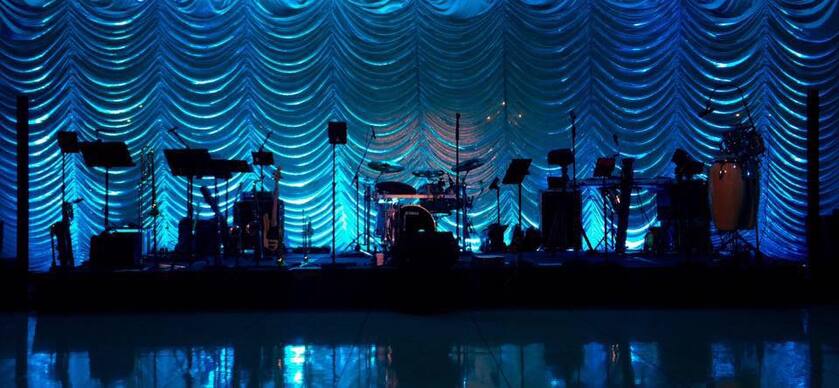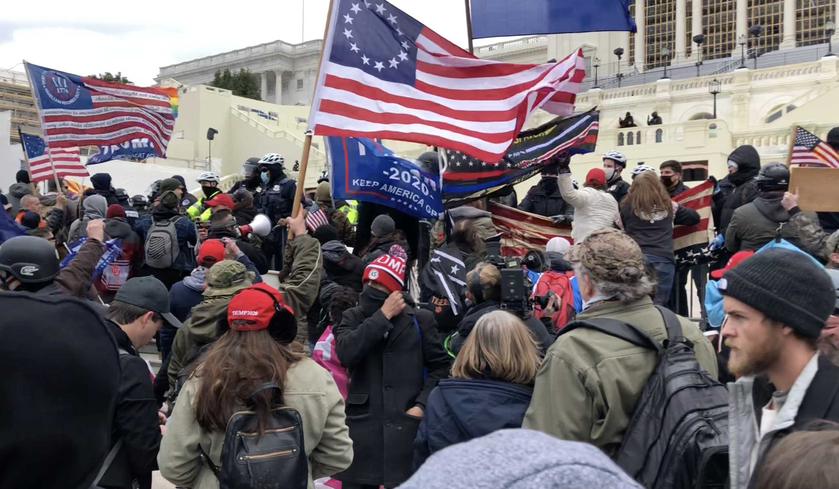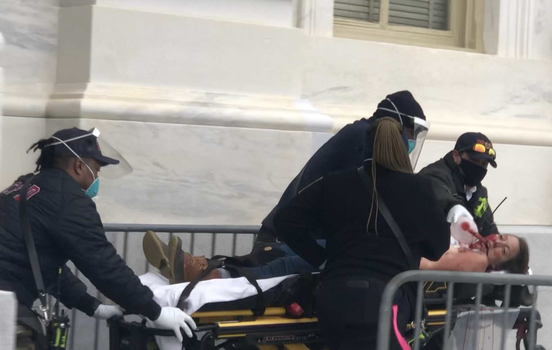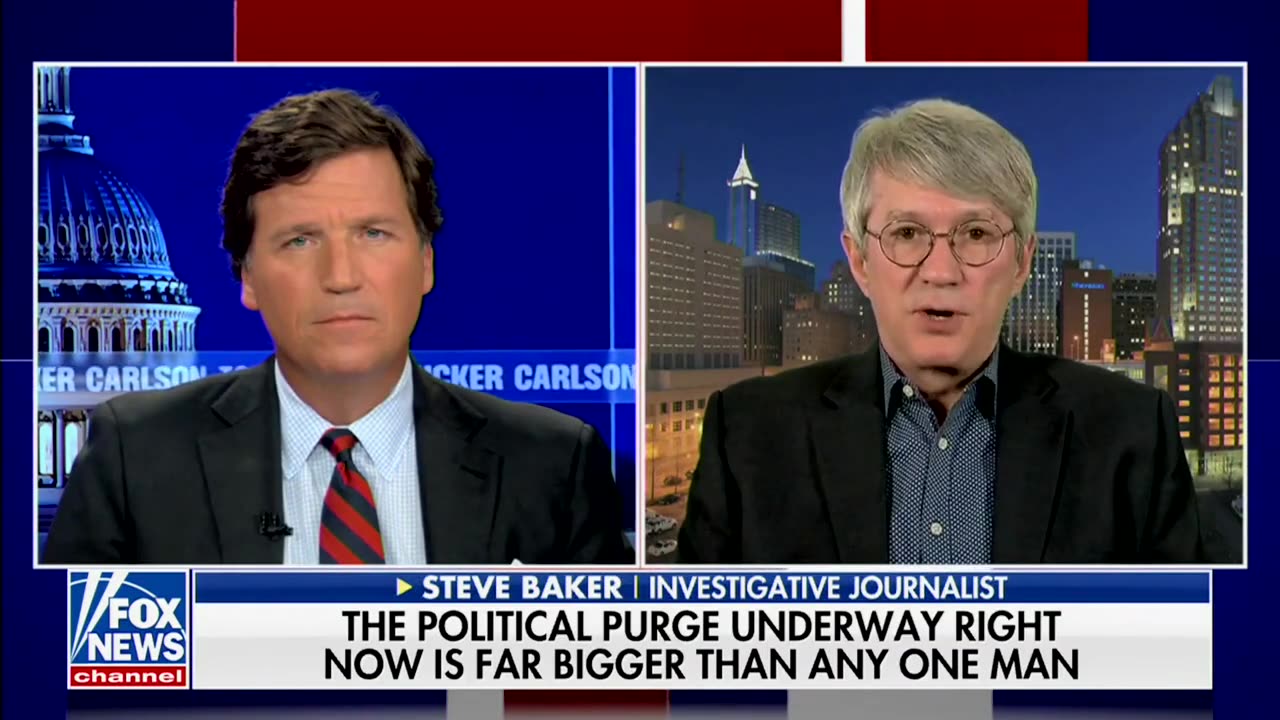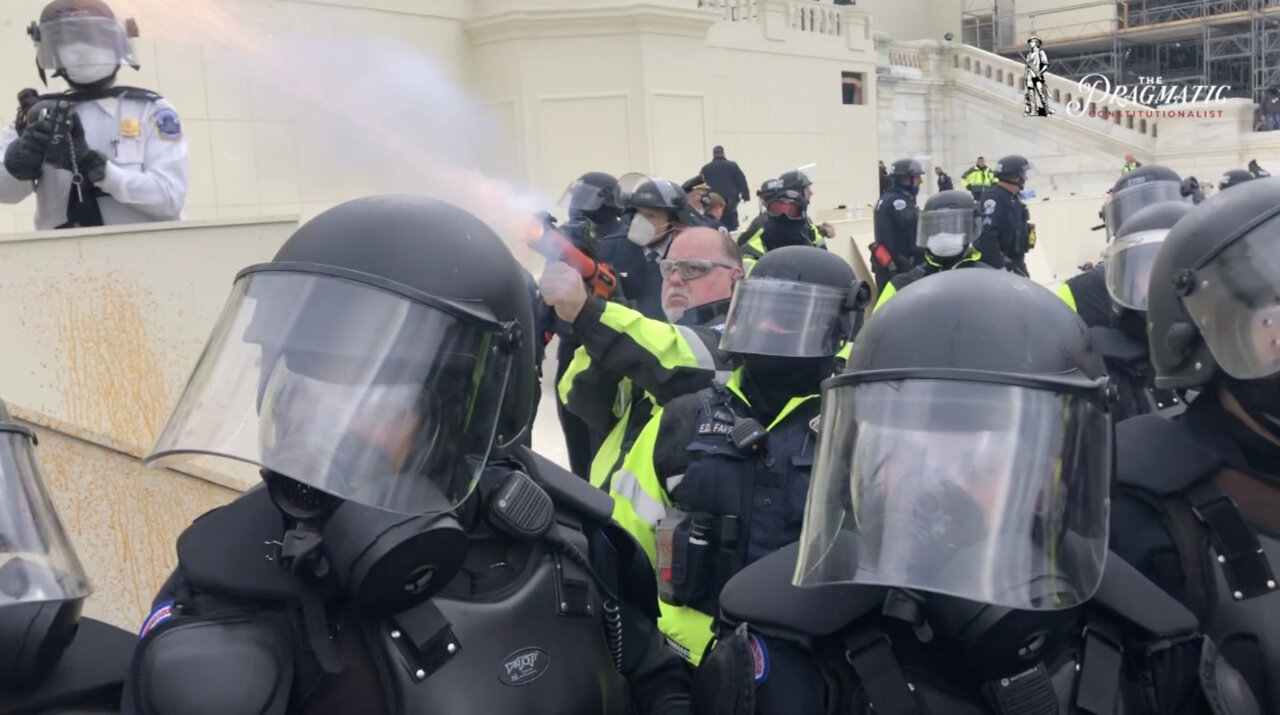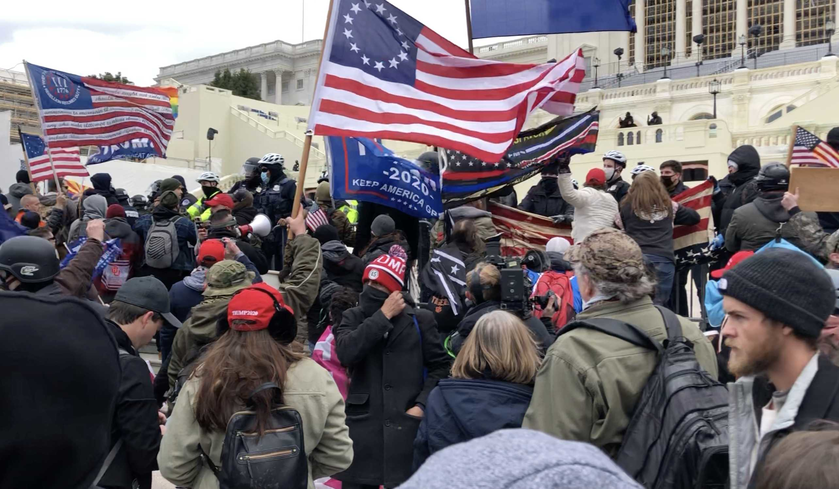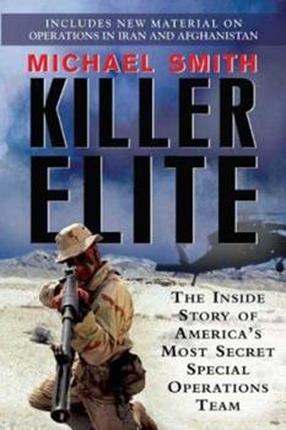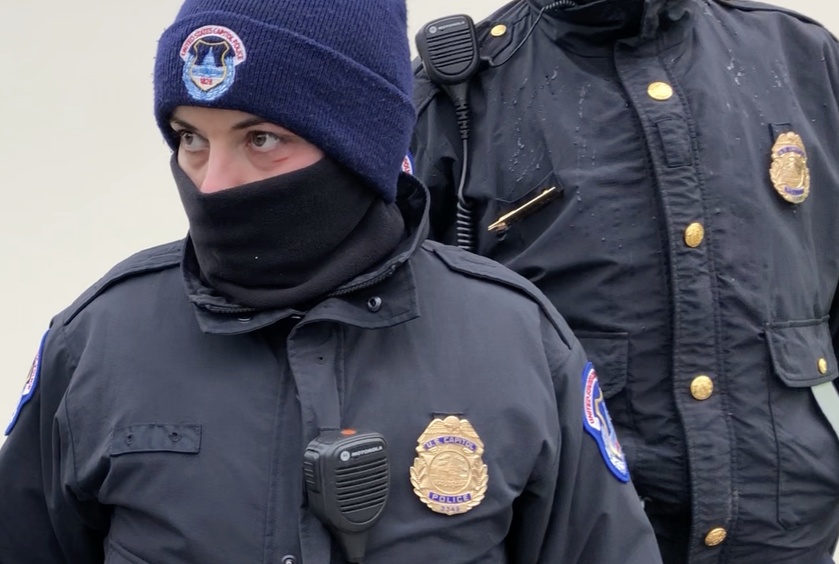
When I met with former United States Capitol Police Lt. Tarik Johnson, I told him I'd previously written that he and his fellow officers were set up as "sacrificial pawns" on January 6. He pointed his finger toward my face and said:
"That's exactly right. They didn't give a sh-t what happened to us that day."
——
Imagine, if you will, that you were a United States Capitol Police (USCP) officer who showed up to work on January 6, 2021, with no anticipation or expectation of anything other than a normal day at the office. Whether you were a rookie officer, or one with 20 years experience in the USCP — and regardless of your specialized position and training, your on-the-job experience before had been not much more than performing the operations of a glorified tour guide for both VIP visitors and general public tourists to the nation’s seat of government.
That’s an oversimplification, given the various units of the USCP consist of Long-Gun Certified Officers, a Civil Disturbance Unit, Criminal Investigation, Intelligence Unit, Dignitary Protection Unit, Containment Emergency Response Team (SWAT unit), Hazardous Devices Team, and several other specialized units.
Skipping past the initial westside barricade breach — at which USCP officer Caroline Edwards was knocked unconscious when shoved down by the first violent perpetrators, hitting her head on the concrete steps — imagine that you were one of the few dozen USCP officers being ordered to relocate and defend the lower west side Capitol terrace against those initial agitators. Many of them were arriving wearing gas masks, carrying and using blunt force objects, and canisters of a variety of types of pepper spray. (What else might they be carrying, concealed under heavy winter clothing?)

Luke Robinson was photographed carrying a handgun on January 6
You’d heard over radio comms that these unexpected visitors had already overrun outer barricades. They are now pushing and pulling against the barricade line you’ve just arrived to defend. Some of those rioters are breaking apart permanent black-metal fencing, turning the various pieces into clubs and projectile spears. You’re wearing no protective gear — no helmet, no eye protection, no gas mask — but your job is to now prevent further incursion toward the Capitol Building itself, where the entire Congress and Vice President of the United States are currently in session to ratify the Electoral College vote.
Already outnumbered by the initial arrival of provocateurs, imagine looking over those heads and shoulders and seeing thousands of other protesters marching toward your position, having no idea of their intentions. As you’re defending that line, being shoved, hit with flag poles and broken pieces of fencing, and assaulted by OC spray, you have no idea whether or not those thousands you see approaching also intend violence or might be carrying more lethal weapons.
You might rightly assume the possibility you’d never again be going home to your family. USCP Lt. Tarik Johnson told Joe Hanneman of The Epoch Times and myself, that very thing. At one point during the initial violence and chaos of January 6, Johnson phoned his wife to tell her he might not make it home alive.
——
When one has a crossover conservative/libertarian readership, like my own, a small handful of topics present no-win scenarios. Issues upon which, if I take one side or the other, half my readers blast me in the comment sections. If I present a more nuanced, middle-of-the-road — dare I say, a pragmatic position — I risk the ire of both sides.
The most obvious topic is anything related to our most recent former president. Trump Derangement Syndrome is real, and as I often point out, it cuts both ways. Another — and the underlying topic of this screed — is all things related to law enforcement.
Both the libertarian-ish anarchists, on what I define as the far right of the political spectrum, (though they will argue with me on that designation), as well as the faux-anarchists of the far left, (see: Antifa), both subscribe to the acronym we see scrawled on buildings after many riots, ACAB: all cops are bastards.
The most extreme of these see no justification for any form of local or federal policing. Purist constitutionalists often interpret all police agencies as “standing armies,” and therefore antithetical to founding principles. Many who acquiesce to some justification for police forces are still automatically knee-jerk to blaming the cops when any violent or deadly force is used against private citizens — even before evidence of justification is presented.
Then, of course, there are those — mostly from the right — who invariably “Back the Blue” . . . even when evidence is presented of unjustifiable use of force. All sides have their rationalizations to defend their respective positions.
For this narrative, I would ask all my readers to set aside their own biases and predispositions toward law enforcement. Particularly as related to the actions of the USCP on January 6. I’ll briefly reference the behaviors of the D.C. Metropolitan Police (MPD) and other agencies, but my study and investigations into those other agencies' actions that day are far exceeded by that of my analysis of the USCP.
——
Two years hence, many of my initial perspectives have been challenged by increasingly available evidence. For instance, on the evening of January 6 — upon return to my Arlington, VA hotel room — I posted a video to YouTube, where I specifically said I’d witnessed the majority of the violence being committed by Trump supporters. Then, upon my return home, I sequestered myself away for five days of frame-by-frame analysis of my own videos, taken of the Capitol’s west terrace battle line, then continuing into and through the Capitol Building. Time and again in that analysis I experienced “W(hat)TF? and W(ho)TF? was that” moments in those video frames.
By the time I published my first story about what I’d seen that day, all my initial preconceptions, from the day itself, were challenged. I even concluded that I have a new life axiom:
“I’ll never again believe anything I don’t see with my own eyes. Even then, consult the videotape.”
Our own eyes can deceive us in such a highly kinetic, violent event. It’s why every law enforcement officer knows that a dozen eyewitnesses to a violent crime will give a dozen different versions of what occurred. Unless one has ample experience in such events, the shock of unexpected violence causes different peoples’ minds to register and process the episode in diverse and often contradictory ways.
I now know — beyond a reasonable doubt — many of those frontline agitators and provocateurs, who I initially assumed to be Trump supporters, were anything but. Were there right-wing militias present? Yes. Left-wing anarchists? (Antifa?) Most certainly. Did I observe crowd manipulation tactics from professional provocateurs, experienced in rallying violence and coordinating movements of large groups? Definitely. Do I know, with absolute certainty whom these provocateurs worked for? No. (And neither do you. Not yet.)
What we do know, is that the late Senate Sergeant-at-Arms Michael Stenger, in his last testimony before Congress on February 23, 2021, said, “There is an opportunity to learn lessons from the events of January 6th. Investigations should be considered as to funding and travel of what appears to be professional agitators.”
More recently, in the trial of Richard "Bigo" Barnett — who infamously posed for a photo with his feet up on Nancy Pelosi’s desk — USCP Captain Carneysha Mendoza was asked by defense attorney Bradford Geyer if the provocateurs she observed on January 6 were, “Highly trained violent people who work and coordinate together?” Mendoza answered, “Yes.”
In the lead-up to my second story about January 6 — published on February 24, 2021 — my investigations led me to discover and report that several federal agencies, including Army special forces operatives, were embedded in the crowd that day. This was later confirmed by a Newsweek story on January 3, 2022, entitled, “Secret Commandos with Shoot-to-Kill Authority Were at the Capitol.”
I know that’s a lot of preliminary groundwork laid before getting into the USCP’s response and actions on January 6, but you’ll hopefully understand why it was necessary before I proceed. Now, I ask you to set aside your understanding of what you believe transpired that day, in addition to your biases about law enforcement in general.
——
You’re now back on that Capitol lower west terrace battle line . . .
From testimony given in the first Oath Keepers trial, we learned — as a uniformed USCP officer — that it was likely you received no notification from your commanders that there were any planned protest events scheduled and permitted, (by the USCP itself), on the Capitol grounds that day.
USCP officer Ryan Salke testified in the Oath Keepers trial that he was only aware something was, “Going on at the White House that day.” This is even though the evidence was presented of the actual applications and permits issued by USCP authorities for staging, PA systems, and VIP speakers on the Capitol grounds for January 6th. Including speeches by members of Congress.
Congress members . . . actual USCP protectees . . . scheduled to speak on USCP permitted stages . . . and you, a USCP officer charged with their security, have no knowledge this was to take place during that day’s tour of duty.
Additionally, ample advertising in the form of flyers and internet postings were seen by millions of Americans, about not only the rally at The Ellipse — for the president’s and others’ speeches — but also scheduled marches to and around the Capitol Building, those speeches on the Capitol lawn, and even a protest on the “steps” of the Capitol.

USCP Chief Steven Sund, Asst. Chief Yogananda Pittman, (head of protective and intelligence operations), the MPD, the United States Park Police, the White House, the Pentagon, the National Guard, both the Senate and House of Representative Sergeants-at-Arms, Nancy Pelosi, Mitch McConnell, the FBI, and other federal agencies all knew that tens of thousands of protestors would be descending upon the Capitol grounds that day. Yet, the frontline USCP officers were neither notified nor prepared for what was to come.
——
I arrived at the lower west terrace battle line at exactly 1:19 p.m. The first thing my camera captured was both protestors and police officers receiving first aid. The next thing I registered with my own eyes was the shock and fear in the eyes of those officers defending the barricade line. They were taken by surprise, and unprepared, and the USCP in particular, were obviously and woefully untrained for what was taking place.

The arrival of reinforcements by the MPD was another story. They had far more experience in dealing with violent protests in our nation’s Capital. Most recently from numerous riots initiated by left-wing groups — Antifa and BLM — post-George Floyd’s death. The look in their eyes was different, many of whom seemed to relish the engagement and enjoy knocking heads.
After an hour of violence, and when the violent insurgents were successfully breaching the lower west terrace police line, USCP Lt. Tarik Johnson was desperately radioing for decontamination tents, water supplies as first aid, reinforcements, redeployment of understaffed USCP units, and operational direction from Chief Sund and Asst. Chief Pittman — both of whom were in the Command Center — but Johnson’s calls for a plan . . . any plan . . . were being ignored.
From both audio recordings and transcripts of USCP radio transmissions — obtained by The Epoch Times, that I was also made privy to in our collaboration for their story published on January 10th of this year — we can hear Lt. Johnson’s voice:
“If you’re not able to get units out here at a certain point, can you advise, unit 400, if you want me to push everybody inside of the lower terrace door and lock it . . . If we can’t get any help on the north side, we’re gonna have to bring everybody in and we will have to lock the doors.” (1:53 p.m.)

No response from Command. Lt. Johnson takes the initiative — and not for the first time that day:
“Be sure that there are no weapons left on the lower west terrace, bring them all inside the doors now, any weapons that we have, bring them inside . . . Anyone on the lower terrace now, I need you to fall back and I need you to respond to the attack, we’re not going to use lethal force, we can’t risk them taking the M4s [automatic rifles] from us, so if you have an M4, I need you to respond on the lower terrace door now . . . We are not going to be able to keep these people out, all the M4s need to be inside the terrace doors now, no M4s out.” (1:54 p.m.)
No response from Command. Johnson, again:
“Advising you that all situations here are dire, we’re going to prepare to evacuate the lower west terrace and everybody’s about to go inside, I’ll advise in about two minutes.” (1:58 p.m.)
At exactly 2:00 p.m., Asst. Chief Pittman’s voice can be heard for the first time, all day:
“Unit two, at this time, we're ordering a lockdown of the Capitol building, lock down the Capitol building.”
USCP Inspector Thomas Lloyd immediately responds to Pittman’s order, (rather derisively), “That was done a long time ago,” as he’d previously issued that order almost an hour earlier.
Then, Lt. Johnson urgently begs:
“Can we get in the lower terrace door first, before you lock it down?”
No response from command.
At 2:08 p.m., Lt. Johnson radios, urgently requesting command to give them much-needed direction:
“I’m telling you what we need. We need some kind of a tactical plan just to divert these breachers, so we can get everybody in the lower west terrace door. We do not have any hard gear up here. We need a plan to get these people, these officers back in the building. They’re coming, and [we] can’t stop them from breaching.”
Asst. Chief Pittman is heard on the radio again, with the following feckless order:
“Unit two, at this time, we are ordering a campus-wide lockdown. A campus-wide lockdown. Please simulcast.”
Nothing else coming from Pittman could have been more incompetent or utterly useless. By this time, the entire Capitol campus was overrun on all sides, by thousands of protestors with unknown intentions. She could see this on her CCTV screens. All her officers had already been ordered to retreat inside the Capitol, (by Lt. Johnson, himself). None were left amongst the already-gathered throng to execute her “campus-wide lockdown” command, as tens of thousands of additional rally attendees continued to arrive from The Ellipse.

The USCP’s beleaguered officers were being ignored by their top commanders. Former Chief Sund has testified that he was busy on the phone with the Sergeants-at-Arms, the National Guard, and other agency heads, while Asst. Chief Pittman could see and hear all that was taking place from her command center CCTV videos and radio comms . . . but she was providing no leadership while issuing scant and ultimately impotent directives.
The under-manned USCP officers were on their own. At 2:13 p.m., the Capitol’s northwest Senate windows and door were breached by the lead provocateurs, while many of those officers had been locked outside. Panicked calls are made on radio comms, notifying command that protestors were inside the Capitol Building.

Some of those made their way toward the occupied Senate and House chambers, while others were working their way to the east side Columbus doors, to open those from the inside.
With no direction coming from the command center, who will lead the evacuation of the Senate and House members? Did individual USCP officers behave appropriately or did their actions incite the crowd to more violent acts? Was the lack of leadership and alleged intelligence failures the result of incompetence or something more nefarious? Could the entire event and subsequent tragedies been averted, were they allowed to happen, or were they planned?
